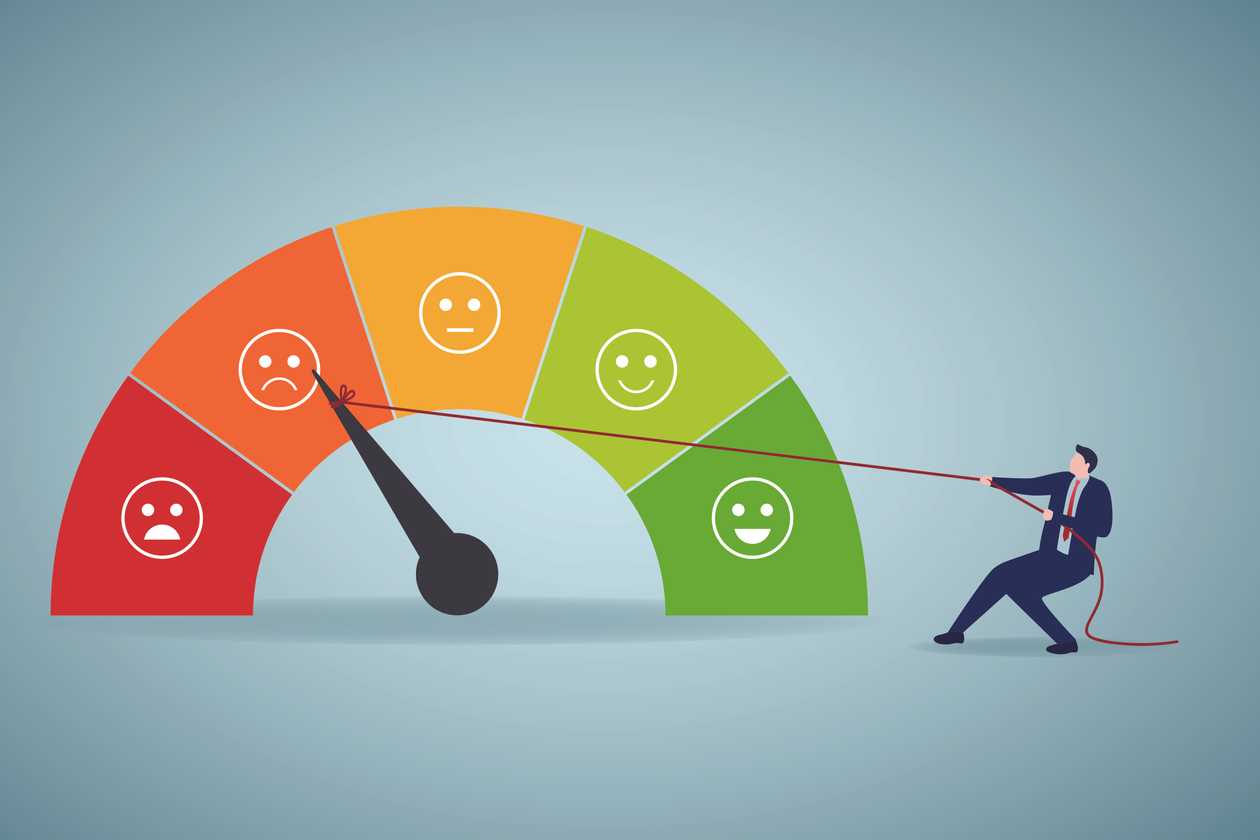

You can also check out – New RBI Guidelines for Loans – LINK
The Importance of Your Credit Score
Your credit score is a three-digit number that lenders use to assess your creditworthiness. It is based on your payment history, credit utilization ratio, length of credit history, types of credit in use, and new credit applications. A higher credit score means you are considered a lower-risk borrower, and you may be eligible for lower interest rates, better credit card offers, and higher credit limits.
How Does Credit Score Affect Financial Opportunities?
Your credit score can have a significant impact on your financial opportunities. Here are some examples:
- Mortgages: When you apply for a mortgage, your credit score will be one of the factors that lenders consider when determining your interest rate. A higher credit score could lead to lower interest rates, which can save you thousands of dollars over the life of your loan.
- Credit cards: Credit card issuers also use credit scores to determine your interest rate and credit limit. A higher credit score could lead to a lower interest rate and a higher credit limit, which can give you more flexibility in managing your finances.
- Employment: Some employers may consider your credit score when making hiring decisions. A low credit score could be seen as a sign of financial instability, which could make it more difficult to get a job.
- Renting an apartment: Landlords may also consider your credit score when deciding whether to rent to you. A low credit score could make it more difficult to find a place to live.
How to Improve Your Credit Score
There are a few things you can do to improve your credit score:
- Make all your payments on time. This is the most important factor in determining your credit score.
- Keep your credit utilization ratio low. Your credit utilization ratio is the amount of credit you are using divided by the total amount of credit you have available. A good goal is to keep your credit utilization ratio below 30%.
- Lengthen your credit history. The longer your credit history is, the better it will be for your score.
- Get a variety of credit accounts. Having a variety of credit accounts can show lenders that you are able to manage different types of credit.
- Avoid opening new accounts too often. Too many new credit inquiries can hurt your score.
Conclusion
Your credit score is an important part of your financial health. By taking steps to improve your credit score, you can open up more financial opportunities and save money in the long run.
🔗 Join our Telegram Channel! 🔗
📲 Click on the link below to join:
🚀 Stay updated with the latest market trends and insights. 📈📊
=====================================================
Most Related Questions and Answers from this Article:
1. What is a credit score?
Answer: A credit score is a three-digit number used by lenders to evaluate your creditworthiness. It’s based on factors like payment history, credit utilization, credit history length, types of credit, and new credit applications.
2. How is a credit score calculated?
Answer: A credit score is calculated based on various factors, including your payment history, credit utilization ratio, length of credit history, types of credit accounts, and recent credit inquiries.
3. Why is a higher credit score important?
Answer: A higher credit score indicates you’re a lower-risk borrower. It can lead to benefits such as lower interest rates on loans, better credit card offers, and higher credit limits.
4. How does a credit score affect mortgages?
Answer: Lenders consider your credit score when offering a mortgage. A higher credit score could result in lower interest rates, potentially saving you money over the loan’s lifespan.
5. What’s the relationship between credit scores and credit cards?
Answer: Credit card issuers use your credit score to set interest rates and credit limits. A higher score may lead to lower rates and higher limits, providing more financial flexibility.
6. Can a credit score impact employment?
Answer: Some employers consider credit scores during hiring decisions. A low score might be interpreted as financial instability, potentially affecting your job prospects.
7. How does a credit score influence renting an apartment?
Answer: Landlords may assess your credit score when deciding whether to rent to you. A low score might make it harder to secure a rental.
8. What are some tips to improve your credit score?
Answer: Strategies include making timely payments, maintaining a low credit utilization ratio (below 30%), having a longer credit history, diversifying credit accounts, and avoiding frequent new credit applications.
9. Is making payments on time the most crucial aspect of credit scores?
Answer: Yes, making timely payments is a fundamental factor affecting your credit score. It demonstrates responsible credit behavior.
10. Why is the credit utilization ratio important?
Answer: The credit utilization ratio measures the percentage of available credit you’re using. Keeping it below 30% is advisable as it shows responsible credit management.
11. How does the length of credit history impact scores?
Answer: A longer credit history generally improves your score, as it provides more data for lenders to assess your credit behavior.
12. Why is having a variety of credit accounts beneficial?
Answer: A diverse credit profile suggests you can manage different types of credit responsibly, potentially boosting your creditworthiness.
13. Can opening too many new accounts hurt your credit score?
Answer: Yes, frequently opening new accounts can negatively affect your credit score due to increased credit inquiries.
14. Why is maintaining a good credit score important for financial health?
Answer: A good credit score opens up more financial opportunities, potentially leading to lower interest rates and better terms on loans.
15. How can improving your credit score help save money?
Answer: A higher credit score can lead to lower interest rates, reducing the overall cost of borrowing over time.
In Hindi –
आपका क्रेडिट स्कोर क्या है?
आपका क्रेडिट स्कोर एक तीन अंकों की संख्या है जिसका उपयोग बैंक और अन्य वित्तीय संस्थान आपके ऋण चुकाने की क्षमता का आकलन करने के लिए करते हैं। यह आपके भुगतान इतिहास, क्रेडिट उपयोग अनुपात, क्रेडिट इतिहास की लंबाई, उपयोग में लाए जाने वाले क्रेडिट के प्रकार और नए क्रेडिट अनुप्रयोगों पर आधारित है। एक उच्च क्रेडिट स्कोर का मतलब है कि आप एक कम जोखिम वाले उधारकर्ता हैं, और आपको कम ब्याज दरों, बेहतर क्रेडिट कार्ड ऑफ़र और उच्च क्रेडिट सीमा के लिए पात्र हो सकते हैं।
क्रेडिट स्कोर कैसे आपके वित्तीय अवसरों को प्रभावित करता है?
आपका क्रेडिट स्कोर आपके वित्तीय अवसरों पर महत्वपूर्ण प्रभाव डाल सकता है। कुछ उदाहरण हैं:
- मॉर्गेज: जब आप एक मॉर्गेज के लिए आवेदन करते हैं, तो आपका क्रेडिट स्कोर उन कारकों में से एक होगा जो बैंक आपके ब्याज दर को निर्धारित करने पर विचार करते हैं। एक उच्च क्रेडिट स्कोर से कम ब्याज दर हो सकती है, जो आपको ऋण की पूरी अवधि में हजारों डॉलर बचा सकती है।
- क्रेडिट कार्ड: क्रेडिट कार्ड जारीकर्ता भी क्रेडिट स्कोर का उपयोग आपके ब्याज दर और क्रेडिट सीमा निर्धारित करने के लिए करते हैं। एक उच्च क्रेडिट स्कोर से एक कम ब्याज दर और एक उच्च क्रेडिट सीमा हो सकती है, जो आपको अपने वित्त को प्रबंधित करने में अधिक लचीलापन दे सकती है।
- रोजगार: कुछ नियोक्ताओं को आपका क्रेडिट स्कोर नौकरी के अवसरों पर निर्णय लेने में महत्वपूर्ण हो सकता है। एक कम क्रेडिट स्कोर को वित्तीय अस्थिरता का संकेत माना जा सकता है, जिससे नौकरी पाना अधिक कठिन हो सकता है।
- अपार्टमेंट किराए पर लेना: मकान मालिक भी आपका क्रेडिट स्कोर तय करते समय यह तय कर सकते हैं कि क्या वे आपको किराए पर देंगे या नहीं। एक कम क्रेडिट स्कोर आपको एक जगह खोजने में अधिक कठिन बना सकता है।
आपका क्रेडिट स्कोर कैसे बेहतर बना सकते हैं?
आपके क्रेडिट स्कोर को बेहतर बनाने के लिए कुछ बातें हैं जो आप कर सकते हैं:
- सभी भुगतान समय पर करें। यह आपके क्रेडिट स्कोर को निर्धारित करने में सबसे महत्वपूर्ण कारक है।
- अपने क्रेडिट उपयोग अनुपात को कम रखें। आपका क्रेडिट उपयोग अनुपात आपके द्वारा उपयोग किए जा रहे क्रेडिट की मात्रा को आपके द्वारा उपलब्ध कुल क्रेडिट से विभाजित करता है। एक अच्छा लक्ष्य अपने क्रेडिट उपयोग अनुपात को 30% से कम रखना है।
- अपने क्रेडिट इतिहास को लंबा करें। आपका क्रेडिट इतिहास जितना लंबा होगा, आपके स्कोर के लिए उतना ही अच्छा होगा।
- विभिन्न क्रेडिट खाते प्राप्त करें। विभिन्न क्रेडिट खातों के होने से उधारदाताओं को यह पता चल सकता है कि आप विभिन्न प्रकार के क्रेडिट को प्रबंधित करने में सक्षम हैं।
- नए खाते बहुत बार न खोलें। बहुत से नए क्रेडिट इंक्वायरी आपके स्कोर को नुकसान पहुंचा सकते हैं।
निष्कर्ष
आपका क्रेडिट स्कोर आपके वित्तीय स्वास्थ्य का एक महत्वपूर्ण हिस्सा है। क्रेडिट स्कोर में सुधार के लिए कदम उठाकर, आप अधिक वित्तीय अवसरों को खोल सकते हैं और लंबे समय में पैसे बचा सकते हैं।








